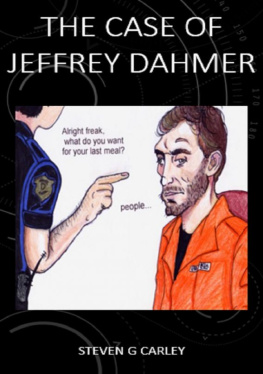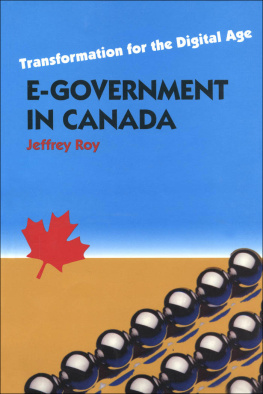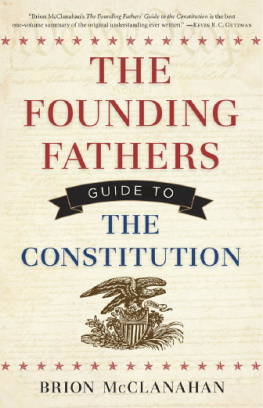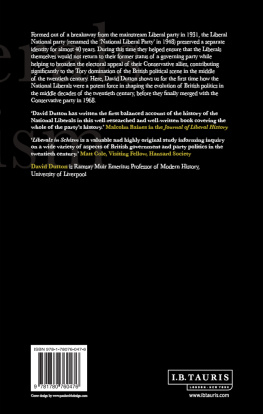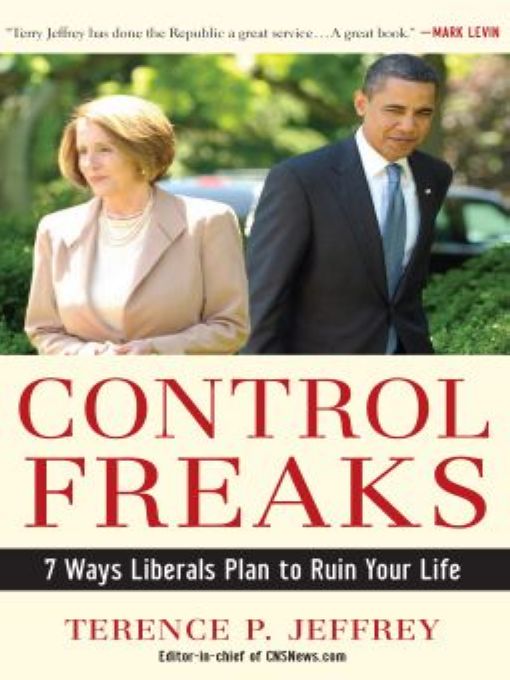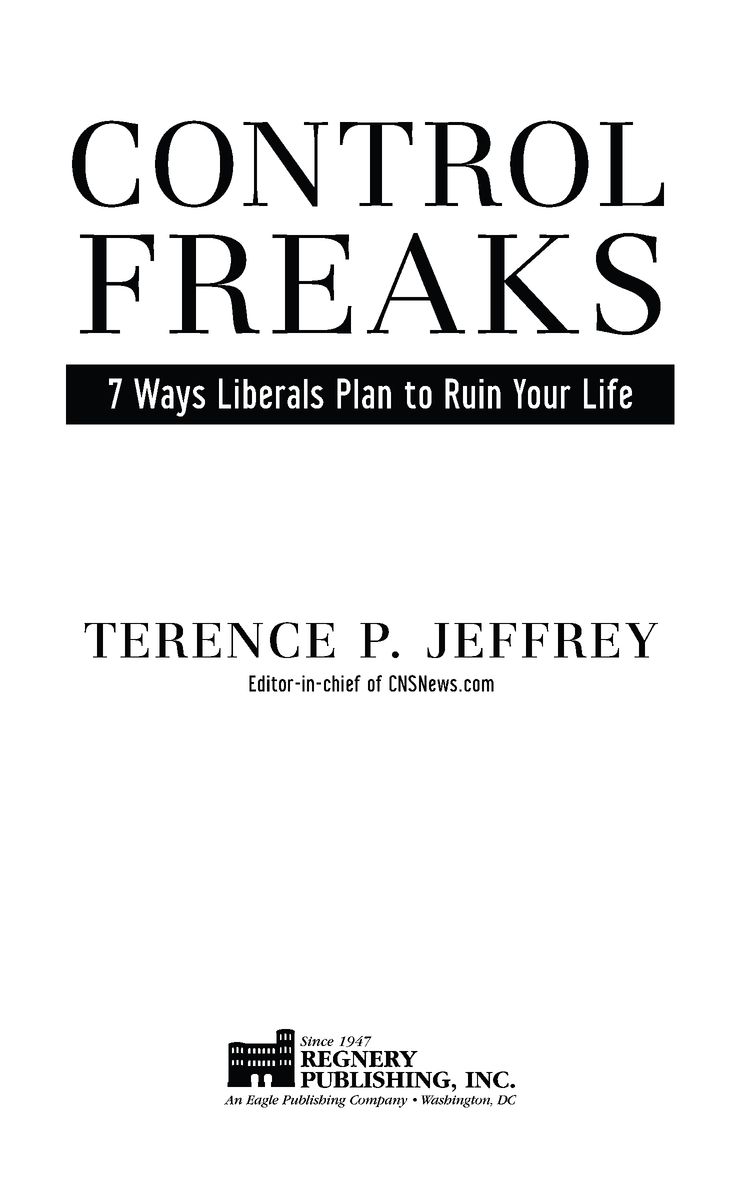Table of Contents
For Julie
Introduction
Whos In Control?
In the quest for freedom in our everyday lives, we are ultimately confronted with a practical, not a philosophical, question: Who is in control?
When we make the major decisions in our lives, we are free. When someone else makes them, we are not free. When government makes them, we live in tyranny.
The liberals discussed in this book advocate imposing unnecessary, or even unjust, government controls on the lives of individuals. Modern American liberals, as demonstrated in these pages, would like to see the government exercise more control over our movement, our retirement income, our health care, our private property, our speech, whether we live or die, and even whether we are allowed to live according to our consciences or raise our children to love and embrace the God-given moral law that forms the only foundation of a free society.
This work seeks to illuminate how these liberals are pushing America away from liberty toward forms of government control that will ruin our nation.
Many Americans, who know they owe their children the same great nation our parents gave to us, are already calling our leaders back to the matchless governing principles of the Constitution and the eternal values of the Declaration of Independence, that, together, are the guides that will lead us home to the land of the free.
Chapter 1
Coercing People Out of Their Cars
Liberals Want to Control Your Movement
He would be a rash prophet who should assert that the expansive character of American life has now entirely ceased. Movement has been its dominant fact, and, unless this training has no effect upon a people, the American energy will continually demand a wider field for its exercise.
Frederick Jackson Turner
The Significance of the Frontier in American History, 1893
The days where were just building sprawl forever, those days are over.
President Barack Obama
Fort Myers, Florida, February 10, 2009
It is a way to coerce people out of their cars, yeah.
Transportation Secretary Ray LaHood
National Press Club, May 21, 2009
Liberals love Ray LaHood because he is the type of Republican who wants government to control more of American life. When President Obama named him secretary of transportation, it was not so much an act of bipartisanship as an expression of ideological solidarity.
About a month into his tenure, LaHood told the Associated Press that the administration should consider taxing people for every mile they drive their car, a system that would require tracking peoples movements. We should look at the vehicular miles program where people are actually clocked on the number of miles that they traveled, he said. What I see this administration doing is thisthinking outside the box on how we fund our infrastructure in America.
The Associated Press reported that the system LaHood had in mind would require all cars and trucks be equipped with global satellite positioning technology, a transponder, a clock and other equipment to record how many miles a vehicle was driven, whether it was driven on highways or secondary roads, and even whether it was driven during peak traffic periods or off-peak hours. A similar system proposed in Massachusetts, the wire service noted, had drawn complaints from drivers who say its an Orwellian intrusion by government into the lives of citizens.
LaHoods big-brother-like suggestion proved too much even for Obama, who had just pushed a $787 billion stimulus law through Congress and was preparing to launch an ambitious campaign to enact a national health program. Within twenty-four hours, White House Spokesman Robert Gibbs told reporters the president would not back the driver-tracking plan. As we shall see, however, the president would back other ideas LaHood had for controlling how people move.
While a member of the U.S. House of Representatives, LaHood had served on the Appropriations Committee, the panel that decides each year how the federal government will spend trillions of dollars of other peoples money. He once spoke with arresting candor about why he wanted to serve on this committee. The reason I went on the Appropriations Committee, the reason other people go on the Appropriations Committee, he said, is they know that it puts them in a position to know where the money is at, to know the people who are doling out the money and to be in the room when the money is being doled out.
Before Obama drafted him for his Cabinet, LaHood had become one of the biggest-spending Republicans on Capitol Hill. The New York Times described him as a backer of earmarks,
In LaHoods view, the transportation secretarys highest duty was not to build highways and facilitate freedom of movement, but to use government to change the way people live. Early on, he announced what he called a livability initiative
Utt noted that the Smart Growth and New Urbanist movements want Americans to move into higher density developmentssuch as townhouses and high-rise apartment buildingswhich, the antisuburbanists contend, can be better served by public transportation (hence the commitment to transportation choice, a process whereby commuters are bribed or coerced into an inconvenient mode of transportation that most would not choose on their own)thereby freeing the hapless American people from relying on their automobiles.
LaHood first described what he had in mind using benign-sounding words in testimony given to the House subcommittee that allocates gas-tax money. If a large share of the traveling public could walk or bike for short trips, it is estimated that the nation could save over one million gallons of gas and millions of dollars in motor fuel costs per day, he said. Transit-oriented development also has the potential to contribute significantly to the revitalization of downtown districts, foster walkable neighborhoods, and offer an alternative to urban and suburban sprawl and automobile-focused commuting.
The administration, he conceded, wanted to influence how people choose to travel. But their goal was to increase the independence of those who do not drive rather than limit the independence of those who do.
Mixed-use neighborhoods with highly-connected streets arranged in small blocks promote mobility for all users, whether they are walking, bicycling, riding transit or driving motor vehicles, he said. Benefits include improved traffic flow, shorter trip lengths, reduced vehicle-miles traveled, safer streets for pedestrians and cyclists, lower per-capita greenhouse gas emissions, reduced dependence on fossil fuels, increased trip-chaining, and independence for those who prefer not to or are unable to drive.
A couple of months after this testimony, LaHood lunched with columnist George Will. Will discovered that the former Republican congressman had come all the way out of the closet as an advocate of using government to alter the way Americans live. I think we can change peoples behavior, LaHood told Will.
Government promoted driving by building the Interstate Highway System, LaHood said. He intended to reverse that. People are getting out of their cars, they are biking to work, he said, pointing to Portland, Oregon, as an example of the type of place where government has promoted this trend. Appalled, Will wrote a column dubbing Lahood the Secretary of Behavioral Modification.


